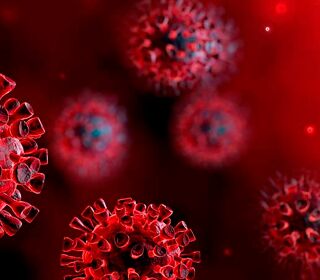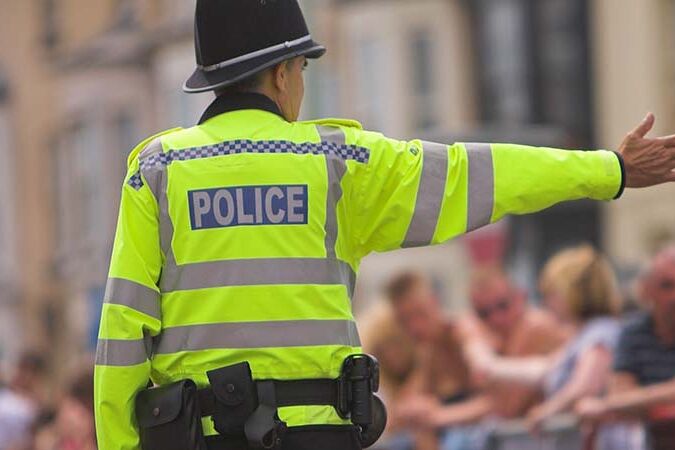
Blog

School of Social Sciences staff members Jonathan Jackson and Lily Hamourtziadou look at global security threats in this uncertain time.
On the 2nd February 1993, James Woolsey began an historical meeting, in which he would justify his appointment by the then President Bill Clinton, to the role of Director at the CIA. Out of this meeting came one of the most insightful predictions of the security challenges and threats which the United States and its allies would face in the upcoming decade. Woolsey described the success of the USA in slaying the great dragon, the USSR, but that in so doing, the white knight would now “live in a jungle filled with a bewildering variety of poisonous snakes. And in many ways, the dragon was easier to keep track of.”
A little less than 30 years later, the threats facing the USA appear to follow this prediction with many small state and non-state actors looking to overthrow both near and far enemies, in order to enforce political and religious ideologies. Certainly since the attacks of 9/11, the threat from the extremes has seen conventional military doctrine struggling to compete against small but well-armed and organised groups, who seek to exploit the often unregulated cyber-environments.
What is becoming clear is that many of the dragons are far from slain and in fact are back on the world stage, attempting to exploit US isolationism to enforce regional dominance. Chinese and Russian involvement in conflict environments has moved from covert operations to overt forms of aggression, with Syrian civilians often bearing the brunt of Putin’s need to flex state muscles. The USA and its global allies now face a combined mixture of dragons and poisonous snakes to fight and seemingly reduced resources and political will to do so.
China continues to be a riddle wrapped inside an enigma. A state of great wealth, which manufactures most of the world’s goods, but maintains the trappings of a Communist controlled state. The fierce grip on its people has proven useful when employing powers to attempt to control the spread of the recent outbreak of the coronavirus. The state’s ability to build hospitals in 10 days appears to balance starkly with European responses to the crisis, but we must also recognise the extreme measures taken at the early stages of the outbreak to silence those doctors who first recognised the risk.
Scenes of panic-buying and stockpiling, images of empty shelves and empty streets, bring to mind the Security Dilemma. States, in order to heighten their security, may increasing their military strength and stockpile weapons, which then leads to other states doing the same, producing insecurity and (possibly) conflict, even when that was never the intended outcome -which was, in fact, the opposite.
As people stockpile goods to feel more secure, the opposite is achieved: there is instead a tension, increased fear, and, as people go out and see empty shelves, a growing sense of insecurity. It is becoming increasingly obvious that our security is threatened in many different ways. We are also at risk of becoming less and less secure, as we attempt to secure our little corner, increase our prosperity and pursue our own interests, as states have done for centuries.
The concept of security has for too long been interpreted narrowly: security of territory from external aggression, protection of national interests, global security from the threat of a nuclear holocaust. Yet the security of people in their daily lives involves a child that did not die of starvation or through lack of medicine. It is a disease that did not spread, a job that was not cut, a dissident who was not silenced and a right that was not violated. Security is indivisible and universal, applying to the wealthy, to the poor, to westerners and easterners, people of all religions, cultures and races. It is also interdependent, as local insecurities can cross borders and have global implications. Lastly and most importantly, in the 21st century security is people-centred: in UN terms, it is ‘freedom from fear, freedom from want’.
War, poverty, exploitation, imperialism, insurgency, as well as state violence, threaten not only the survival, but also the dignity of millions of people. The harm can come as death, illness, starvation, homelessness, bereavement, trauma. It can be harm to personal safety, to basic needs and to freedom –of movement, to a language, to a culture, for self-expression. Fear, poverty and inequality and fundamental threats to human security, in people’s day-to-day existence.
In the 21st century the United Nations identified seven categories of human security: economic, food, health, personal, community, political and environmental.
- Economic security means having an assured income, preferably through paid work, but also public safety net measures ensuring income to those unable to obtain one.
- Food security requires adequate access to food, physically and economically, that is, food which is vital to health and wellbeing.
- Health security means having access to health care and protection against diseases, especially those linked to malnutrition and environmental degradation.
- Personal security addresses threats from physical violence (by one’s own state, other states, groups of people, through war, terrorism, torture, sectarian violence, genocide, or ethnic cleansing).
- Community security is the security individuals get within a group, establishing a sense of belonging and identity rooted in shared practices and values.
- Political security requires the freedom to be governed in a way that respects basic human rights, protected by democratic institutions in which individuals are given a voice. Control over information and media, physical repression by paramilitaries, threats of prison or detainment during political protests are all examples of political insecurity.
- Environmental security addresses the environmental challenges posed by climate change, deforestation, the damage done to the eco-system, desertification, and by human conflict.
21st century perspectives on security focus on the protection of the vital core of all human lives in ways that enhance human freedoms and fulfilment. It means protecting fundamental freedoms that are the essence of life, using processes that build on people’s strengths and aspirations, creating political, social, environmental, economic, military and cultural systems that together give people the building blocks of survival, livelihood and dignity. Security means freedom from impoverishment, pollution, hunger, homelessness, ill health and illiteracy.
As we mark the 17th anniversary of the invasion of Iraq, we continue to see the impact of that invasion on the security of the Iraqis. For 17 years now, the people of Iraq have endured insecurity in all sectors: the checkpoints and walls, the curfews, poverty, lack of medicine, explosions and shootings as they shop, go to work, wait in queues, protest, attend weddings and funerals… And for the first time in the 21st century, the UK is witnessing the trauma of isolation, of fear, of food scarcity. At a time when our children’s education is threatened, when we are barely able to provide for the sick, for the elderly and for those who are out of work, we are reminded of all those people who have experienced years of hardship, of terror, of trauma. We know a little of how it feels to fear going to the market, to fear going to a funeral, to fear sending our young to school, to fear becoming ill, to fear becoming broke.
What the spread of Covid-19 is showing us is that our security does not consist in staying safe from invaders alone. Or in staying alive. Living in fear threatens every aspect of society, every aspect of life: the young and the old, the food and the medicine, work and entertainment, school and play, our sense of joy and, when we can’t even comfort the dying, our sense of loss. The Dragons and the Snakes still present threats to our security, but we now understand that threats do not just exist outside our borders and do not always carry weapons.




